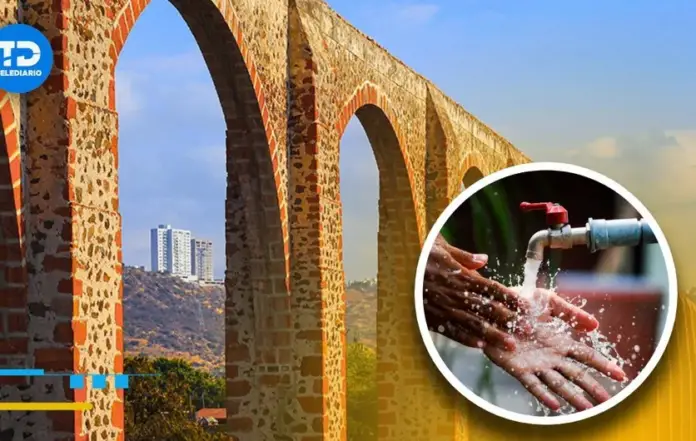The Supreme Court of Justice of the Nation (SCJN) has approved the reform that allows for reducing the water supply to taxpayers who are behind on their bills in the PAN state of Querétaro.
However, it clarified that the minimum amount that can be granted daily to those who are behind is 50 liters per person, and that the specific circumstances of each family must be taken into account; in other words, in exceptional cases, the amount cannot be reduced.
The foregoing arose from a constitutional action filed by the Legal Counsel of the Presidency of the Republic, which challenged Articles 74 and 75, final paragraph, of the Law Regulating the Provision of Drinking Water, Sewerage, and Sanitation Services in the State of Querétaro, published on April 9, 2024.
Why the Law Regulating the Provision of Drinking Water, Sewerage, and Sanitation Services in the State of Querétaro is Wanted to Reduce the Supply to Water Debtors
The State Water Commission (CEA) seeks to reduce debts and is betting that users can be held accountable.
The law regulating the provision of drinking water, sewerage, and sanitation services in the state of Querétaro, published in May 2022, establishes in its Article 75 the causes that limit service.
Section III states that this may be due to non-payment of the corresponding prices for the supply of drinking water, purification, sewage treatment, and wastewater disposal services, including the recirculation and reuse of said water, for a period of two or more consecutive months.
The State Water Commission closed last year with an overdue portfolio of 1.5 billion pesos, of which 90 percent are debts for residential properties and the rest for service providers and other establishments.
Since the current state administration took office, residents’ debt has been reduced by 28.58 percent (in fixed amounts), as in October 2021, overdue payments totaled 2.1 billion pesos.
Measure approved by the SCJN guarantees the right to water
The Plenary unanimously approved the bill proposed by Minister Margarita Ríos Farjat, who stated that the reform to the aforementioned statute is not unconstitutional, as it guarantees a minimum service that does not restrict a human right.
“…the challenged regulations are constitutional. It must be assumed that this is a case of repeated non-payment by users and that, far from being a restriction on a human right, it is a minimum guarantee that the service will not be suspended and that providers will take the necessary measures to guarantee access to at least 50 liters of water per day, taking into account that this amount may increase if users request a larger amount of water based on their circumstances or individual needs,” she explained.
Ríos Farjat commented that the public, private, and social sectors are involved in the drinking water service in Querétaro, although municipal authorities are ultimately responsible for providing drinking water services, and the possibility exists of granting concessions to private individuals.
“Concessionaires are obligated to provide the service, and the concession can be terminated if they fail to comply. This means that the concession can be terminated if the minimum amount of water necessary for a person is not supplied, even in the event of non-payment by the user,” she stated.
Minister Yasmín Esquivel Mossa agreed with the proposal and emphasized that authorities, like the concessionaire companies, have the duty to respect and guarantee the human right to water without discrimination for non-payment, ensuring its availability, quality, and accessibility at all times, taking into account the minimum requirement of 50 liters per day, as established by the World Health Organization (WHO), and avoiding the total disconnection of the drinking water supply due to non-payment.
In this regard, Minister Loretta Ortiz Ahfl emphasized that the bill states that when a person requires more than the 50 liters per day stipulated in the law, they will be able to request an increase from the concessionaire, who, in accordance with the principles of availability and non-discrimination of the right to water, must increase the supply to a level that meets that person’s specific needs.
Source: telediario




